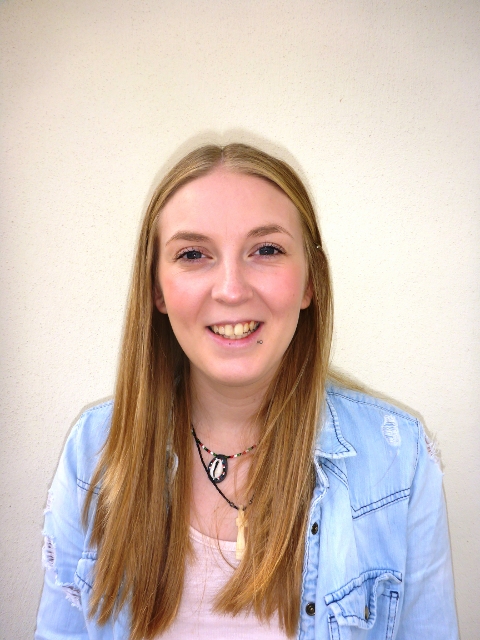Film school has been pretty full-on from the beginning. The Met Film School BA is unlike others in that it’s a two-year programme instead of three, so you really hit the ground running. We were given access to equipment straight away, and basically handed a camera and told to fi lm! I believe this is quite a unique approach, because at university there’s the expectation that you’ll be doing a lot of writing and theoretical work before actually starting the practical stuff, but we were trusted to get on with things right away.
I’m quite creative, and find it easier to make something rather than write about making something, so this set-up was perfect for me. We’re studying in a very creative environment. In the morning it’s pretty intense, and we’re all working hard on creating films.
Lunch is spent in the common room where films are playing and we’re all talking about films, and then in the afternoon it’s back to the filming! Your whole day is concentrated on one thing instead of moving from class to class, which is great because it allows you to fully get to grips with things and immerse yourself in the project. The course is split up into modules, and within each module there are a variety of projects to complete.
Modules include things like working on short films and web series, as well as the first part of the course which provides you with a foundation in film. All aspects of filmmaking are covered, from directing, screenwriting, producing and editing. It’s a really holistic approach, but you’re given the opportunity to focus on areas that you are particularly good at and enjoy with the projects.
Everyone benefits from this approach, because it’s like you’re part of a ready-made fi lm crew. So, if you’re working a project and you need a producer, you know that there’ll be someone available to help you out. Collaboration is key, and learning this early is crucial because if you want to go on to work on a fi lm set good teamwork is essential.
I’ve worked on so many different projects throughout my degree. I remember my first film was something very short that I only had three hours to shoot. I moved on from that to doing a short drama film shot over two days using a variety of different sets.
Met has a strong industry focus in general; not only are we using industry-standard equipment on film sets, but we’re also taught by lecturers who have all worked in the industry in some way. Guest lecturers also come in to give masterclasses, so there’s a strong emphasis on learning practical skills that are relevant to our future careers. People don’t realise how well a creative and practical degree can prepare you for a variety of different careers.
My particular interest, which I’ve developed over the past couple of years, is dialogue within film, but I know that the skills I have in this area aren’t limited purely to the fi lm industry, and that I can go into plays and theatre as well. I know producers who have gone into managerial roles, something which makes perfect sense given all the organisational work you’re involved with on a film set. It’s great how degrees in creative subjects are becoming more and more acceptable, and having an entire school dedicated to film just shows how far this area has come.
The British film industry is booming following the biggest upturn in the last 20 years. Film school gives you the chance to become part of this thriving and exciting industry, but also opens other pathways that you may not have even considered. Amber Fullwood is in her final year of a BA in Practical Filmmaking at Met Film School, which is based at Ealing Studios, west London. For details visit www.metfi lmschool.co.uk.



